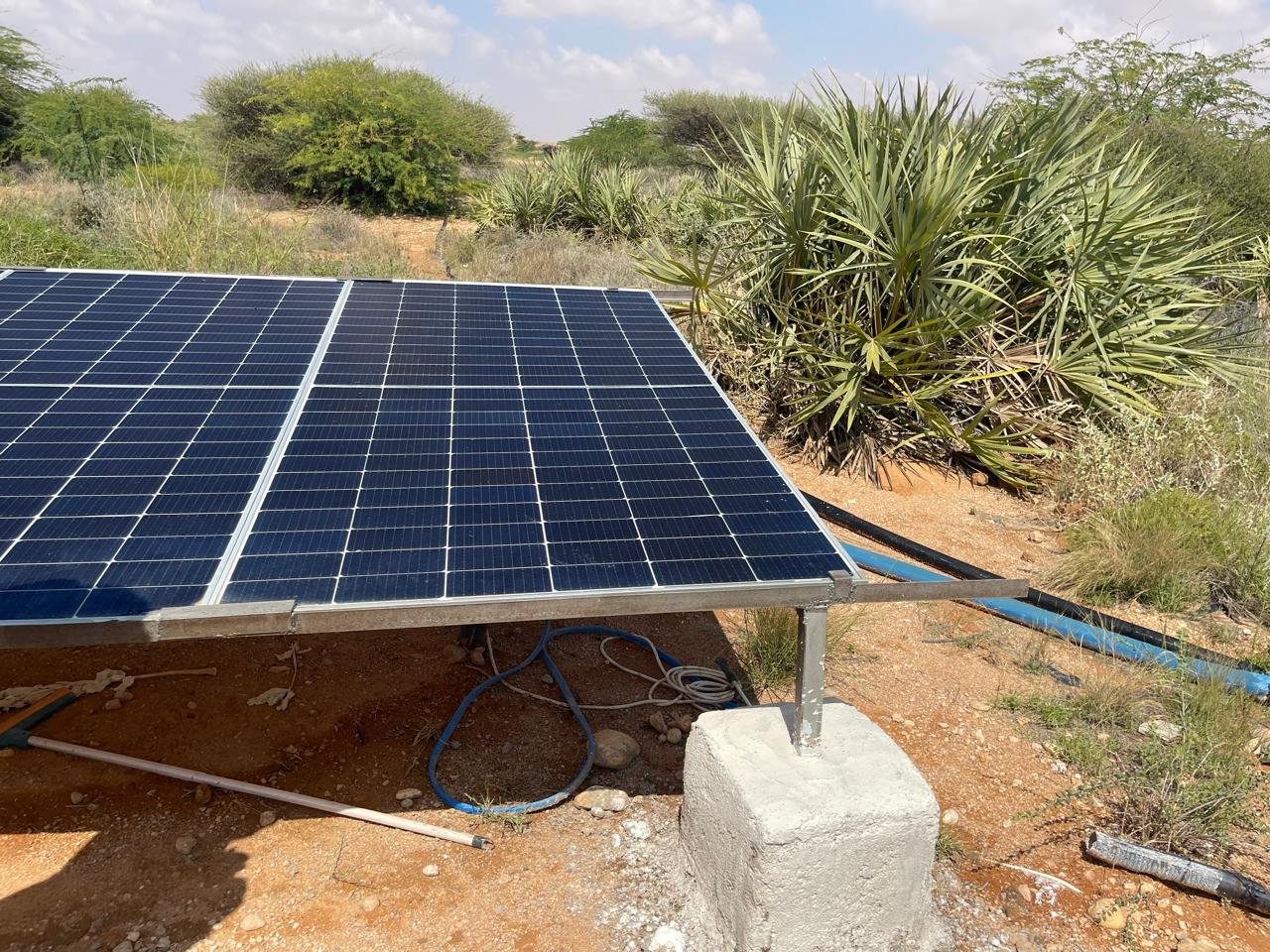Harvesting Solutions in Somalia with help from The BuLSHO FUND
PHOTO CAPTION: Cilantro sprouting, also at Dalsan —marking the early stages of a harvest made possible by community-led, climate-resilient farming.
The Bulsho Fund is a local funding mechanism in Somalia. Established in 2021, the Fund provides flexible and unrestricted grants to communities, for both short-term disaster relief and for longer-term development work.
Across Somalia, smallholder farmers are the backbone of food security, yet often they face multiple challenges: climate unpredictability, water shortages, high production costs and transport issues. Three farming cooperatives, Dalsan, Towfiq, and Kulan—with investments from the Bulsho Fund—are demonstrating the power of locally-led solutions in restoring food security, improving livelihoods, and scaling sustainable agriculture.
Their successes showcase how direct funding to communities leads to greater efficiency, impact, and long-term resilience.
Dalsan Farming Cooperative in Bari Region, Puntland
In the face of climate volatility, Dalsan Farming Cooperative has emerged as a model for climate-smart agriculture in Somalia.
“With the solar water pump, our farm (1.2 hectares) has been able to farm fully during the dry seasons, bringing employment to 6 permanent farmhands and 2 girls who manage the farm on different days of the week. Our farm is in an isolated settlement, we focus on annual grains rather than cash crops, as transport could be severely limiting, especially during rainy seasons. We expect to harvest between 2 and 3 tons of wheat and sorghum by mid-winter (June-July). Our farm does not bring in much hard currency, but it provides food security and sustainability for us and the settlement in general." -Mohamed Ahmed, Head of the Towfiq Cooperative
With the support of the Bulsho Fund, Dalsan Farming Cooperative have achieved:
🔆 Solar water pumping system.
💧 Water storage tank.
🌿 Efficient irrigation with expansion of cultivated land.
Increased production capacity - leading to estimated 100-150% improvement in income generation.
Employment growth providing 6 full-time jobs and 110-130 seasonal jobs, most of which are filled by women.
Bulsho Fund insight: What sets Dalsan apart is its co-financing of the interventions, where the community covered 31% of the total project cost.
———————
Towfiq & Kulan Farming Cooperatives in Lower Shabelle Region, Southwest State
Afgoye, once a vibrant agricultural hub of Somalia, has suffered from recurring droughts, depleting water levels, and increasing fuel prices. To combat these challenges, the Bulsho Fund has equipped them with:
🔆 Solar-Powered Water Pumping:
🌿 Greenhouse Farming in Kulan
💧 Drip Irrigation
Modern Farming Techniques increasing productivity and reducing post-harvest losses.
“Before this support (a solar water pumping system and a greenhouse), our 1-hectare farm sat idle. We are currently concentrating on the greenhouse, which has produced around 4.5 tons of tomatoes and cucumbers, bringing in over USD$7,000. The first batch went to market and sold in a matter of 24 hours. We are using this income to produce varieties of cash crops such as animal fodder for the large number of camel milk businesses and livestock nourishing farms in and around Afgoye. Our key advantage lies in our proximity to the main road for transport to our customers and the fresh produce trading centers in Afgoye, which is the largest producing district in the whole of Somalia.” -Mohamed Amin, Head of the Kulan Farming Cooperative
Bulsho Fund insight: rather than imposing rigid conditions, the Fund adapts to the realities on the ground. Farmers initially struggled with high fuel costs for irrigation, instead of prescribing a fixed solution, the Fund worked with the cooperatives to implement solar-powered water pumping systems, reducing operational expenses and ensuring sustainable water access.
Beyond Somalia: Why the Bulsho Fund and These Farms Matter
Through integrating solar energy, mechanised farming, and modern irrigation, Dalsan, Towfiq, and Kulan Farming Cooperatives are reducing vulnerability to climate shocks, improving food security, and creating sustainable livelihoods. These projects demonstrate that when farmers have access to the right resources, they can drive meaningful change in their own communities. Smallholder farmers are not just food producers but also agents of economic stability and resilience.
Additionally, these initiatives challenge outdated donor models that often exclude local actors from decision-making. Instead of being seen as mere beneficiaries, the farmers and cooperatives leading these projects are recognised as partners, innovators, and problem-solvers. Their ability to co-finance, maintain, problem solve, and expand their own agricultural initiatives demonstrates the viability of community-driven solutions to development challenges.
Beyond Somalia, these projects provide a compelling case for expanding locally-led funding across crisis-affected regions. As global funding models evolve, the Bulsho Fund’s investments prove that flexibility and trust-based funding allows communities to address urgent needs while planning for long-term resilience, leading to more sustainable outcomes.
“No matter where you are, communities and local leaders are at the heart of innovative and long-lasting solutions when responding to humanitarian challenges. The Bulsho Fund is a testament to how community rooted design, supported by locally-led mechanisms, is integral to the foundation of a vibrant civil society. And it is our imperative as a sector to amplify, invest in, and walk in solidarity with locally defined and driven priorities as we collectively endeavour to actualize substantive and enduring change.”
-Bassey Nyambi, Save the Children Denmark, while on a site visit
PHOTO CAPTION: Ground-mounted solar panels at Dalsan Farming Cooperative to power a water pumping system.





